
ABILIFY MAINTENA 960 mg LONG-ACTING INJECTABLE SUSPENSION IN PRE-FILLED SYRINGE

How to use ABILIFY MAINTENA 960 mg LONG-ACTING INJECTABLE SUSPENSION IN PRE-FILLED SYRINGE
Translated with AI
This page provides general information and does not replace a doctor’s consultation. Always consult a doctor before taking any medication. Seek urgent medical care if symptoms are severe.
Show originalContents of the leaflet
Introduction
Package Leaflet: Information for the User
Abilify Maintena 720 mg prolonged-release injectable suspension in a pre-filled syringe
Abilify Maintena 960 mg prolonged-release injectable suspension in a pre-filled syringe
aripiprazole
Read all of this leaflet carefully before you are given this medicine because it contains important information for you.
- Keep this leaflet, you may need to read it again.
- If you have any further questions, ask your doctor or nurse.
- If you get any side effects, talk to your doctor or nurse. This includes any possible side effects not listed in this leaflet. See section 4.
Contents of the pack
- What Abilify Maintena is and what it is used for
- What you need to know before you are given Abilify Maintena
- How Abilify Maintena is given
- Possible side effects
- Storage of Abilify Maintena
- Contents of the pack and other information
1. What Abilify Maintena is and what it is used for
Abilify Maintena contains the active substance aripiprazole in a pre-filled syringe. Aripiprazole belongs to a group of medicines called antipsychotics. Abilify Maintena is used to treat schizophrenia - an illness with symptoms such as hearing, seeing or feeling things that do not exist, mistrust, false beliefs, incoherent speech and emotional and behavioral changes. People with this illness may also feel depressed, guilty, anxious or tense.
Abilify Maintena is indicated for adult patients with schizophrenia who are sufficiently stable during treatment with aripiprazole.
If you have responded well to treatment with aripiprazole by mouth or with Abilify Maintena, your doctor may decide to start treatment with Abilify Maintena. It can help to alleviate the symptoms of your illness and reduce the risk of it coming back.
2. What you need to know before you are given Abilify Maintena
Do not use Abilify Maintena
- if you are allergic to aripiprazole or any of the other ingredients of this medicine (listed in section 6).
Warnings and precautions
Talk to your doctor or nurse before you are given Abilify Maintena.
There have been reports of patients experiencing suicidal thoughts and behaviors while being treated with this medicine. Tell your doctor immediately if you have thoughts or feelings of harming yourself before or after being given Abilify Maintena.
Before treatment with this medicine, tell your doctor if you:
- have a state of acute agitation or an intensely psychotic state.
- have cardiovascular diseases (heart and circulation diseases), a family history of cardiovascular disease, stroke or mini-stroke, abnormal blood pressure.
- have heart problems or a history of stroke, especially if you know that you have other risk factors for stroke.
- have blood clots or a family history of blood clots as antipsychotics have been associated with the formation of blood clots.
- have irregular heartbeats or if someone else in your family has a history of irregular heartbeats (including a condition known as QT prolongation seen on ECG monitoring).
- have involuntary and irregular muscle movements, especially in the face (tardive dyskinesia).
- have a combination of fever, sweating, rapid breathing, muscle stiffness and drowsiness or sleepiness (these may be signs of neuroleptic malignant syndrome).
- have seizures, as your doctor may want to monitor you more closely.
- have dementia (loss of memory and other mental abilities) especially if you are elderly.
- have high blood sugar levels (characterized by symptoms such as excessive thirst, increased urination, increased appetite and feeling of weakness) or a family history of diabetes.
- have difficulty swallowing.
- have a history of gambling addiction.
If you notice that you are gaining weight, developing unusual movements, feeling drowsiness that interferes with your daily activities, any difficulty swallowing or experiencing symptoms of an allergic reaction, talk to your doctor immediately.
Tell your doctor if you, your family or caregiver notice that you are developing impulses or urges to behave in an unusual way that you cannot resist, such as gambling, excessive eating or spending, abnormally high sexual desire or an increased interest in sexual thoughts and feelings. This is called impulse control disorder and can include behaviors such as gambling addiction, excessive eating or spending, abnormally high sexual desire or an increased interest in sexual thoughts and feelings.
Your doctor may consider adjusting or stopping the dose.
This medicine may cause drowsiness, a drop in blood pressure when standing up, dizziness and changes in your ability to move and keep your balance, which could lead to falls. You should be careful, especially if you are an elderly patient or have some weakness.
Children and adolescents
Do not use this medicine in children and adolescents under 18 years of age. It is not known if it is safe and effective in these patients.
Using Abilify Maintena with other medicines
Tell your doctor or pharmacist if you are taking, have recently taken or might take any other medicines.
Medicines to lower blood pressure: Abilify Maintena may increase the effect of medicines used to lower blood pressure. Make sure to tell your doctor if you are taking medicines to control blood pressure.
If you are using Abilify Maintena with another medicine, it may mean that your doctor needs to change your dose of Abilify Maintena or the other medicine. It is especially important that you tell your doctor if you are taking:
- medicines to correct heart rhythm (such as quinidine, amiodarone, flecainide, diltiazem)
- antidepressants or herbal medicines used to treat depression and anxiety (such as fluoxetine, paroxetine, escitalopram, St. John's Wort)
- medicines to treat fungal infections (antifungals) (such as itraconazole)
- ketoconazole (used to treat Cushing's syndrome when the body produces too much cortisol)
- certain medicines to treat HIV infection (such as efavirenz, nevirapine and protease inhibitors such as indinavir, ritonavir)
- anticonvulsants used to treat epilepsy (such as carbamazepine, phenytoin, phenobarbital, primidone)
- certain antibiotics used to treat tuberculosis (rifabutin, rifampicin)
- medicines that are known to prolong the QT interval.
These medicines may increase the risk of side effects or reduce the effect of Abilify Maintena; if you notice any unusual symptoms when taking any of these medicines at the same time as Abilify Maintena, you should tell your doctor.
Medicines that increase serotonin levels are usually used in diseases that include depression, generalized anxiety disorder, obsessive-compulsive disorder (OCD) and social phobia as well as migraine and pain:
- triptans, tramadol and tryptophan used for diseases such as depression, generalized anxiety disorder, OCD and social phobia as well as migraine and pain
- selective serotonin reuptake inhibitors/serotonin-norepinephrine reuptake inhibitors (SSRIs/SNRIs) (such as paroxetine and fluoxetine) used for depression, OCD, panic and anxiety
- other antidepressants (such as venlafaxine and tryptophan) used in severe depression
- tricyclic antidepressants (such as clomipramine and amitriptyline) used in depressive illnesses
- St. John's Wort (Hypericum perforatum) used in herbal medicines for mild depression
- painkillers (such as tramadol and pethidine) used to relieve pain
- triptans (such as sumatriptan and zolmitriptan) used to treat migraine.
These medicines may increase the risk of side effects; if you notice any unusual symptoms when taking any of these medicines at the same time as Abilify Maintena, you should tell your doctor.
Using Abilify Maintena with alcohol
Alcohol should be avoided.
Pregnancy, breastfeeding and fertility
If you are pregnant or breastfeeding, think you may be pregnant or are planning to have a baby, ask your doctor or pharmacist for advice before using this medicine.
Do not use Abilify Maintena if you are pregnantunless you have discussed this with your doctor. Make sure to tell your doctor immediately if you are pregnant, think you may be pregnant or are planning to become pregnant.
The following symptoms may occur in newborn babies of mothers who use this medicine in the last three months of pregnancy (last trimester): shaking, stiffness and/or muscle weakness, drowsiness, agitation, breathing problems and difficulty feeding.
If your baby develops any of these symptoms, you should contact your doctor.
If you are using Abilify Maintena, your doctor will discuss with you whether you should breastfeed your baby, considering the benefit of your treatment and the benefit of breastfeeding for your baby. If you are being treated with Abilify Maintena, you should not breastfeed. Talk to your doctor about the best way to feed your baby if you are using this medicine.
Driving and using machines
During treatment with this medicine, dizziness and vision problems (see section 4) may occur. This should be taken into account when requiring maximum attention, for example, when driving or operating machinery.
Abilify Maintena contains sodium
This medicine contains less than 1 mmol of sodium (23 mg) per dose; this is essentially "sodium-free".
3. How Abilify Maintena is given
Abilify Maintena is given as an injection of a suspension in a pre-filled syringe by your doctor or nurse.
Your doctor will decide what dose is best for you. The recommended initial dose is 960 mg given once every 2 months (56 days after the previous injection), unless your doctor decides to give you a lower initial or follow-up dose (720 mg) given once every 2 months (56 days after the previous injection).
There are three ways to start treatment with Abilify Maintena 960 mg; your doctor will decide which way is best for you.
- If you received Abilify Maintena 400 mg 1 or more months before your doctor started treatment with Abilify Maintena 960 mg, your next dose may be replaced with an injection of Abilify Maintena 960 mg.
- If you are given an injection of Abilify Maintena 960 mg on your first day without receiving Abilify Maintena 400 mg 1 month before, treatment with aripiprazole by mouth will continue for 14 days after the first injection.
- If you are given two injections (one of Abilify Maintena 960 mg and one of Abilify Maintena 400 mg) on your first day, you will also take an aripiprazole tablet by mouth on this visit. Your doctor will give you the injections in two different sites (arm and buttock).
After that, treatment is given with injections of Abilify Maintena 960 mg or 720 mg unless your doctor tells you otherwise.
Your doctor will give you the injection as a single dose in the buttock (gluteal muscle) once every two months. You may feel some pain during the injection. Your doctor will alternate the injections between the right and left sides. The injections will not be given into a vein.
If you are given too much Abilify Maintena
This medicine will be given to you under medical supervision, so it is unlikely that you will be given too much. If you see more than one doctor, make sure you tell them that you are using this medicine.
Patient who have been given too much of this medicine have experienced the following symptoms:
- fast heart rate, agitation/aggression, speech problems.
- unusual movements (especially of the face or tongue) and decreased level of consciousness.
Other symptoms may include:
- acute confusion, seizures (epilepsy), coma, a combination of fever, rapid breathing, sweating,
- muscle stiffness and drowsiness, slower breathing, choking, high or low blood pressure, abnormal heart rhythms.
Contact your doctor or the nearest hospital immediately if you experience any of the above symptoms.
If you miss a dose of Abilify Maintena
It is important not to miss your scheduled dose. You should receive an injection once every 2 months. If you miss an injection, you should contact your doctor to schedule the next injection as soon as possible.
If treatment with Abilify Maintena is stopped
Do not stop your treatment just because you feel better. It is important that you continue to receive this medicine for the time that your doctor has told you.
If you have any further questions on the use of this medicine, ask your doctor or nurse.
4. Possible Adverse Effects
Like all medicines, this medicine can cause adverse effects, although not all people suffer from them.
Severe Adverse Effects
Inform your doctor immediately if you experience any of the following severe adverse effects:
- a combination of any of these symptoms: excessive drowsiness, dizziness, confusion, disorientation, difficulty speaking, difficulty walking, muscle stiffness or tremors, fever, weakness, irritability, aggression, anxiety, elevated blood pressure or convulsions that can lead to loss of consciousness.
- unusual movements mainly of the face or tongue, as your doctor may want to lower the dose.
- a combination of fever, faster breathing, sweating, muscle stiffness, and drowsiness or lethargy, as this can be a sign of a disease called malignant neuroleptic syndrome (NMS).
- more thirst than usual, need to urinate more than usual, with a lot of appetite, feel weak or tired, feel like vomiting, feel confused or your breath smells like fruit, as this can be a sign of diabetes.
- suicidal thoughts, behaviors, or thoughts and feelings of self-harm.
The following adverse effects may also occur after administration of Abilify Maintena.
Talk to your doctor or nurse if you experience any of these adverse effects:
Frequent Adverse Effects (may affect up to 1 in 10 people):
- diabetes mellitus
- feeling restless
- feeling anxious
- unable to stay still, difficulty staying seated
- sleep problems (insomnia)
- spasmodic resistance to passive movements such as tensing and relaxing muscles, increased muscle tone in an abnormal form, slow body movements
- akathisia (an uncomfortable feeling of inner restlessness and an urgent need to move constantly)
- seizures or tremors
- uncontrollable tics, jerks, or twisting movements
- changes in level of consciousness, numbness
- drowsiness
- dizziness
- headache
- dry mouth
- muscle stiffness
- inability to have or maintain an erection during sexual intercourse
- pain at the injection site, hardening of the skin at the injection site
- weakness, loss of strength, or extreme fatigue
- during blood tests, your doctor may find elevated levels of creatine phosphokinase in the blood (an enzyme important for muscle function)
- weight gain
- weight loss
Uncommon Adverse Effects (may affect up to 1 in 100 people):
- low levels of a certain type of white blood cell (neutropenia), low hemoglobin, or low red blood cell count, low platelet count in the blood
- allergic reaction (e.g., swelling in the mouth, tongue, face, and throat, itching, hives)
- increased levels of the hormone prolactin in the blood
- increased blood sugar levels
- increased blood fats such as cholesterol and elevated triglycerides
- increased levels of insulin, a hormone that regulates blood sugar levels
- increased or decreased appetite
- suicidal thoughts
- mental disorder characterized by defective perception or loss of reality
- hallucinations (e.g., seeing and hearing things that are not real)
- delirium (e.g., believing things that are not true)
- increased sexual interest (can lead to behavior that significantly concerns you or others)
- panic attack
- depression
- emotional instability
- state of indifference with lack of emotion, feelings of emotional and mental distress
- sleep disorder
- grinding teeth or clenching the jaw
- decreased sexual interest (libido decreases)
- mood altered
- muscle problems
- uncontrollable muscle movements, such as grimacing, lip smacking, or tongue movements. These usually affect the face and mouth first but can affect other parts of the body. These can be signs of a disorder called "tardive dyskinesia".
- parkinsonism: a condition with many and varied symptoms, including slow or reduced movements, slow thinking, jerking when bending limbs (cogwheel rigidity), dragging feet, hurried steps, tremors, scarce or absent facial expression, muscle stiffness, drooling
- movement problems
- extreme restlessness and restless legs
- fixation of the eyeballs in a position
- blurred vision
- eye pain
- double vision
- ocular photosensitivity
- distortion of the senses of taste and smell
- abnormal heartbeat, rapid or slow heartbeat
- high blood pressure
- dizziness when standing up after being lying down or sitting due to a drop in blood pressure
- cough
- hiccups
- gastroesophageal reflux disease. Excessive amount of gastric juice that backs up (reflux) into the esophagus (throat or tube that goes from the mouth to the stomach through which food passes), causing stomach acid and possibly damaging the esophagus
- heartburn
- vomiting
- diarrhea
- nausea
- stomach pain
- stomach discomfort
- constipation
- frequent bowel movements
- drooling, more saliva in the mouth than usual
- abnormal hair loss
- acne, skin disease where the nose and cheeks are unusually reddened, eczema, skin hardening
- muscle stiffness, muscle spasms, muscle tics, muscle tension, muscle pain (myalgia), pain in the limbs
- joint pain (arthralgia), back pain, decreased joint mobility, stiff neck, limited mouth opening
- kidney stones or sugar (glucose) in the urine
- spontaneous milk secretion from the breasts (galactorrhea)
- enlargement of the breasts in men, painful breasts, vaginal dryness
- fever
- loss of strength
- gait disturbance
- chest discomfort
- injection site reactions such as redness, swelling, discomfort, and itching at the injection site
- thirst
- slowness
- during tests, your doctor may find:
- elevated or reduced glucose levels in the blood
- elevated levels of glycosylated hemoglobin
- increased waist circumference
- reduced cholesterol levels in the blood
- reduced triglyceride levels in the blood
- reduced white blood cell and neutrophil counts in the blood
- elevated liver enzyme levels
- reduced prolactin hormone levels in the blood
- abnormal heart reading (ECG) (e.g., decreased or inverted T-wave amplitude)
- elevated alanine aminotransferase levels
- elevated γ-glutamyl transferase levels
- elevated bilirubin levels in the blood
- elevated aspartate aminotransferase levels
- liver function tests may show abnormal results
The following adverse effects have been reported since the marketing of medicines containing the same active ingredient and taken orally, but the frequency with which they occur is unknown (the frequency cannot be estimated from the available data):
- low white blood cell count
- decreased appetite
- low sodium levels in the blood
- completed suicide and attempted suicide
- inability to resist the impulse, instinct, or temptation to perform an action that may be harmful to you or others, which may include:
- strong impulse to gamble excessively despite serious personal or family consequences
- uncontrollable shopping
- binge eating (ingesting large amounts of food in a short period) or compulsive eating (ingesting more food than usual and more than necessary to satisfy hunger)
- tendency to wander
Inform your doctor if you experience any of these behaviors; he will explain how to manage or reduce the symptoms.
- nervousness
- aggression
- malignant neuroleptic syndrome (a syndrome with symptoms such as fever, muscle stiffness, rapid breathing, sweating, decreased consciousness, and sudden changes in blood pressure and heart rate)
- seizures (attacks)
- serotonin syndrome (a reaction that can cause feelings of intense happiness, drowsiness, clumsiness, restlessness, feeling drunk, fever, sweating, muscle stiffness)
- speech disorders
- diabetic ketoacidosis (ketones in the blood and urine) or coma
- fainting
- heart problems, including ventricular tachycardia, cardiac arrest, irregularities in heart rhythm that may be due to abnormal nerve impulses in the heart
- symptoms related to blood clots in the veins, especially in the legs (symptoms include swelling, pain, and redness in the leg), which can travel through the blood vessels to the lungs, causing chest pain and difficulty breathing
- spasms in the throat that can produce the sensation of having a large object stuck in the throat
- spasm of the muscles around the glottis
- accidental aspiration of food with risk of pneumonia (lung infection)
- pancreatitis
- difficulty swallowing
- liver failure
- jaundice (yellow color of the skin and the white part of the eyes)
- liver inflammation
- rash
- skin photosensitivity
- excessive sweating
- severe allergic reactions, such as drug reaction with eosinophilia and systemic symptoms (DRESS syndrome). DRESS syndrome appears initially as pseudogripal symptoms with a rash on the face and, later, with prolonged rash, high temperature, enlarged lymph nodes, increased liver enzyme concentrations observed in blood tests, and increased levels of a type of white blood cell (eosinophilia)
- muscle weakness, sensitivity, or pain, and particularly if you feel unwell, have a high temperature, or have dark urine. These can be caused by abnormal muscle metabolism that is potentially fatal and can cause kidney problems (a condition called rhabdomyolysis)
- difficulty urinating
- involuntary loss of urine (incontinence)
- withdrawal symptoms in newborns
- prolonged and/or painful erection
- sudden unexplained death
- difficulty controlling central body temperature or overheating
- chest pain
- swelling of the hands, ankles, or feet
- during tests, your doctor may find:
- fluctuating results during glucose tests in the blood
- prolonged QT interval (an abnormal reading during the cardiac exam [ECG])
- elevated alkaline phosphatase levels in the blood
Reporting Adverse Effects
If you experience adverse effects, consult your doctor or nurse, even if they are adverse effects that do not appear in this prospectus. You can also report them directly through the national reporting system included in Appendix V. By reporting adverse effects, you can contribute to providing more information on the safety of this medicine.
5. Storage of Abilify Maintena
Keep this medicine out of sight and reach of children.
Do not use this medicine after the expiration date that appears on the packaging and on the pre-filled syringe. The expiration date is the last day of the month indicated.
Do not freeze.
Medicines should not be disposed of through wastewater or household waste. Ask your pharmacist how to dispose of the packaging and medicines that are no longer needed. This will help protect the environment.
6. Container Contents and Additional Information
Composition of Abilify Maintena
- The active ingredient is aripiprazole.
Abilify Maintena 720 mg prolonged-release injectable suspension in a pre-filled syringe
Each pre-filled syringe contains 720 mg of aripiprazole.
Abilify Maintena 960 mg prolonged-release injectable suspension in a pre-filled syringe
Each pre-filled syringe contains 960 mg of aripiprazole.
- The other components are:
Sodium carmellose, macrogol, povidone (E1201), sodium chloride, sodium dihydrogen phosphate monohydrate (E339), sodium hydroxide (E524) (see section 2, Abilify Maintena contains sodium), water for injectable preparations.
Appearance of Abilify Maintena and Container Contents
Abilify Maintena is a prolonged-release injectable suspension in a pre-filled syringe.
Abilify Maintena is a white to off-white prolonged-release injectable suspension in a pre-filled syringe.
Container Size
Each 720 mg container contains a pre-filled syringe and two sterile safety needles: one 38 mm, 22-gauge and one 51 mm, 21-gauge.
Each 960 mg container contains a pre-filled syringe and two sterile safety needles: one 38 mm, 22-gauge and one 51 mm, 21-gauge.
Marketing Authorisation Holder
Otsuka Pharmaceutical Netherlands B.V.
Herikerbergweg 292
1101 CT, Amsterdam
Netherlands
Manufacturer
Elaiapharm
2881 Route des Crêtes Z.I Les Bouillides Sophia Antipolis
06550 Valbonne
France
You can request more information about this medicinal product by contacting the local representative of the marketing authorisation holder:
België/Belgique/Belgien Lundbeck S.A./N.V. Tel: +32 2 535 79 79 | Lietuva
Tel: +45 36301311 |
Lundbeck Export A/S Representative Office Tel: +359 2 962 4696 | Luxembourg/Luxemburg Lundbeck S.A. Tel: +32 2 535 79 79 |
Ceská republika Lundbeck Ceská republika s.r.o. Tel: +420 225 275 600 | Magyarország Lundbeck Hungaria Kft. Tel: +36 1 4369980 |
Danmark Otsuka Pharma Scandinavia AB Tel: +46 8 54528660 | Malta
Tel: +45 36301311 |
Deutschland Otsuka Pharma GmbH Tel: +49 69 1700860 | Nederland Lundbeck B.V. Tel: +31 20 697 1901 |
Eesti
Tel: +45 36301311 | Norge Otsuka Pharma Scandinavia AB Tel: +46 8 54528660 |
Ελλάδα Lundbeck Hellas S.A. Τηλ: +30 210 610 5036 | Österreich Lundbeck Austria GmbH Tel: +43 1 253 621 6033 |
España Otsuka Pharmaceutical, S.A. Tel: +34 93 208 10 20 | Polska Lundbeck Poland Sp. z o. o. Tel.: +48 22 626 93 00 |
France Otsuka Pharmaceutical France SAS Tél: +33 (0)1 47 08 00 00 | Portugal Lundbeck Portugal – Produtos Farmacêuticos, Unipessoal Lda. Tel: +351 21 00 45 900 |
Hrvatska Lundbeck Croatia d.o.o. Tel.: +385 1 644 82 63 | România Lundbeck Romania SRL Tel: +40 21319 88 26 |
Ireland Lundbeck (Ireland) Limited Tel: +353 1 468 9800 | Slovenija Lundbeck Pharma d.o.o. Tel.: +386 2 229 4500 |
Ísland Vistor hf. Sími: +354 535 7000 | Slovenská republika Lundbeck Slovensko s.r.o. Tel: +421 2 5341 42 18 |
Italia Otsuka Pharmaceutical Italy S.r.l Tel: +39 02 00 63 27 10 | Suomi/Finland Otsuka Pharma Scandinavia AB Tel: +46 8 54528660 |
Κύπρος Lundbeck Hellas A.E Τηλ.: +357 22490305 | Sverige Otsuka Pharma Scandinavia AB Tel: +46 8 54528660 |
Latvija
Tel: +45 36301311 | United Kingdom (Northern Ireland) Otsuka Pharmaceutical Netherlands B.V. Tel: +31 (0) 20 85 46 555 |
Date of Last Revision of this Leaflet:
Other Sources of Information
Detailed information on this medicinal product is available on the European Medicines Agency website http://www.ema.europa.eu.
-----------------------------------------------------------------------------------------------------------------------------
This information is intended solely for medical professionals or healthcare professionals:
INSTRUCTIONS FOR HEALTHCARE PROFESSIONALS
Disposal of unused medicinal product and all materials that have come into contact with it should be carried out in accordance with local regulations.
Abilify Maintena 720 mg prolonged-release injectable suspension in a pre-filled syringe Abilify Maintena 960 mg prolonged-release injectable suspension in a pre-filled syringe aripiprazole
- It should be administered by a healthcare professional once every 2 months. Read the complete instructions before using it.
- The injectable suspension is for single use.
- For intramuscular use. Injection should only be given in the gluteus. Do notadminister by any other route.
- Before administration, visually inspect the syringe for particles and discoloration.
- The suspension should be uniform and homogeneous, opaque, and white in color. Do not use Abilify Maintena if it is discolored or contains particles.
Kit Contents
Confirm that the following components are supplied:
- A pre-filled syringe containing Abilify Maintena 960 mg or 720 mg prolonged-release injectable suspension and two safety needles.
- A 22-gauge, 38 mm sterile needle with a black needle hub.
- A 21-gauge, 51 mm sterile needle with a green needle hub.
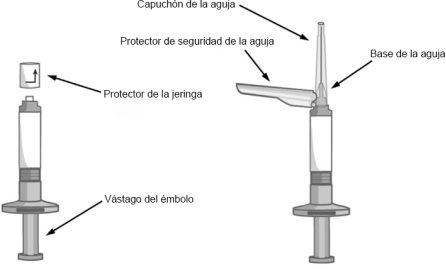
Preparation of the Injection
- Remove the syringe from the container.
- Hold the syringe with one hand and tap it gently at least 10 times.
- Then, shake the syringe vigorously for at least 10 seconds.
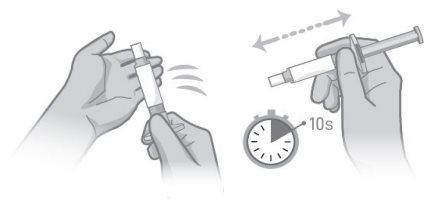
Selection of the Appropriate Needle
For intramuscular administration in the gluteus only.
Needle selection is determined by the patient's body type.
Body Type | Needle Size | Color of the Needle Shield |
Non-obese (BMI <28 kg m2)< p> | 38 mm, 22-gauge | Black |
Obese (BMI >28 kg/m2) | 51 mm, 21-gauge | Green |
Placing the Needle
- Twist and remove the syringe shield.
- While holding the base of the needle, ensure the needle is firmly attached to the safety device by applying pressure and twisting it gently clockwise until it is SECURELY locked.
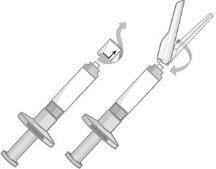
Expelling Air
- When ready to administer the injection, hold the syringe in an upright position and remove the needle cap by pulling it upwards. Do nottwist the needle cap, as this may loosen the connection between the needle and the syringe.

- Slowly move the plunger rod upwards to expel air and until the suspension fills the base of the needle.
- Inject immediately after expelling air from the syringe.
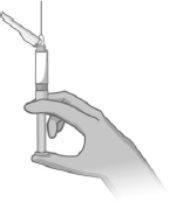
Injecting the Dose
- Inject slowly the entire contents by intramuscular route in the gluteus muscle of the patient.
Do not administerby any other route.
- Do not massage the injection site.
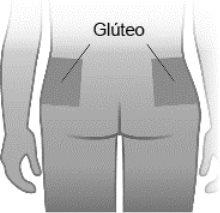
- Remember to alternate injection sites between the two gluteus muscles.
- If initiating administration with two injections, inject them in two different gluteus muscles. DO NOT inject both injections together in the same gluteus muscle.
- Look for signs or symptoms of accidental intravenous administration.
Disposal Procedure
- After injection, attach the needle safety device by pressing the safety shield against a hard surface to cover and lock the shield over the needle.
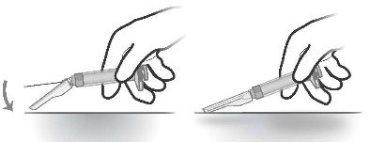
- Immediately discard the used syringe and any unused needle in an approved sharps container.
- An unused needle should not be stored for future use.
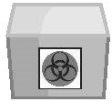
- Country of registration
- Average pharmacy price499.27 EUR
- Active substance
- Prescription requiredYes
- Manufacturer
- This information is for reference only and does not constitute medical advice. Always consult a doctor before taking any medication. Oladoctor is not responsible for medical decisions based on this content.
- Alternatives to ABILIFY MAINTENA 960 mg LONG-ACTING INJECTABLE SUSPENSION IN PRE-FILLED SYRINGEDosage form: ORAL SOLUTION/SUSPENSION, 1 mg/mlActive substance: aripiprazoleManufacturer: Kern Pharma S.L.Prescription requiredDosage form: ORALLY DISINTEGRATING TABLET/LIOTAB, 10 mgActive substance: aripiprazoleManufacturer: Kern Pharma S.L.Prescription requiredDosage form: TABLET, 10 mgActive substance: aripiprazoleManufacturer: Kern Pharma S.L.Prescription required
Online doctors for ABILIFY MAINTENA 960 mg LONG-ACTING INJECTABLE SUSPENSION IN PRE-FILLED SYRINGE
Discuss questions about ABILIFY MAINTENA 960 mg LONG-ACTING INJECTABLE SUSPENSION IN PRE-FILLED SYRINGE, including use, safety considerations and prescription review, subject to medical assessment and local regulations.
Frequently Asked Questions











